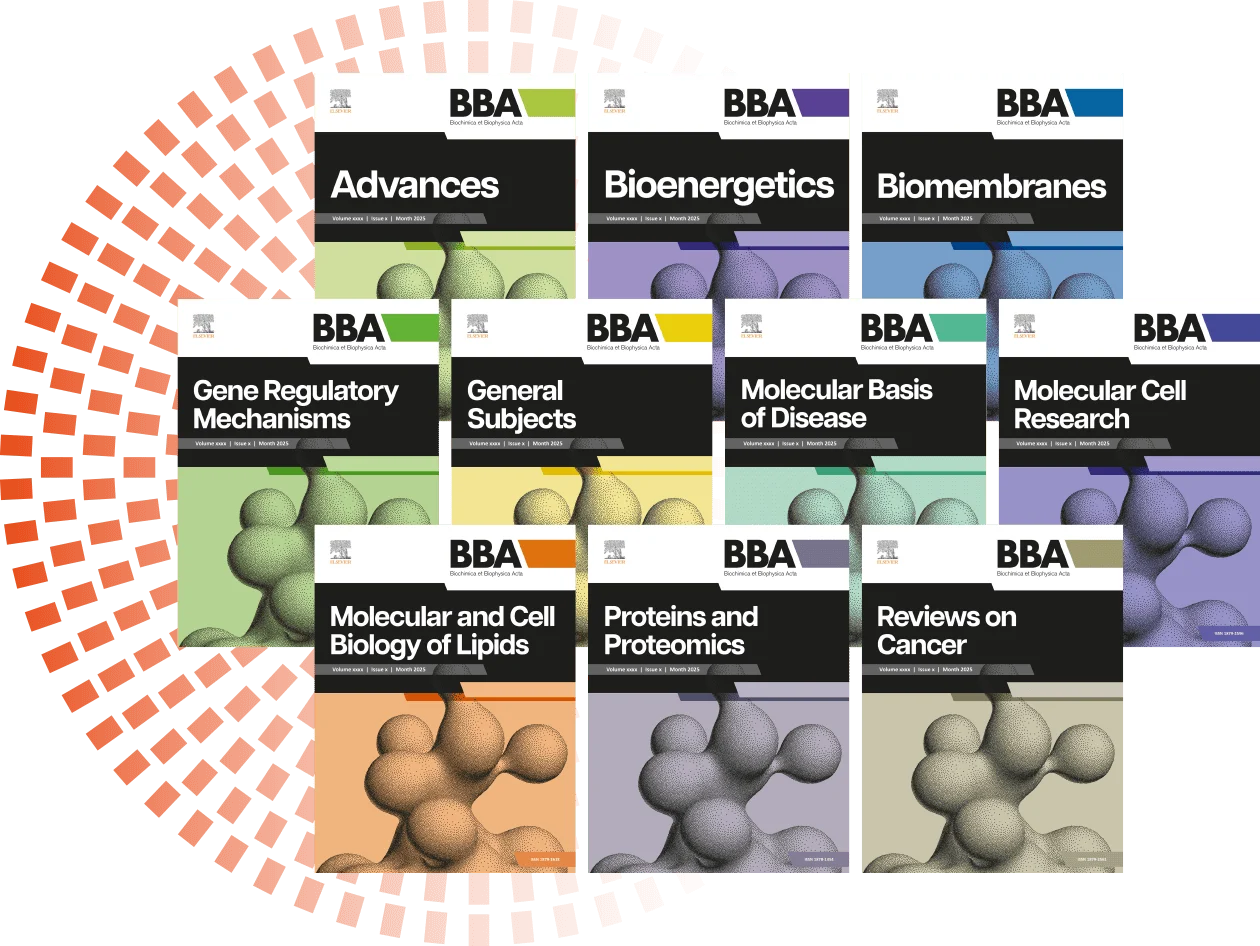Interview with Editor-in-Chief
BBA journals continue to position themselves as leaders in biochemistry and biophysics
Editor-in-Chief, Daniel Otzen discusses how BBA journals are evolving to meet changing and challenging times
Elsevier’s Biochimica et Biophysica Acta (BBA) journals have been a mainstay in the biochemistry and biophysics fields since their inception. A household name for interdisciplinary scientists, they have continued to grow and add journals to the family. To mark the journals’ recent repositioning, we spoke with Editor-in-Chief Daniel Otzen, about how the journals continue to support researchers at all stages of their career.
Can you introduce yourself and your role as Editor-in-Chief of BBA journals?
I’m Daniel Otzen, Professor of Bionanotechnology at Aarhus University, and a member of the Carlsberg Foundation board. While I oversee all ten BBA journals as Editor-in-Chief, I’m also the Executive Editor of the newest journal, BBA Advances. The other journals all have competent Executive Editors, as well as dedicated Scientific Editors (who are scientists themselves with PhDs) that act as an excellent bridge between the science and publishing worlds.
What makes BBA journals unique in the field of biochemistry and biophysics?
BBA started shortly after World War Two and, ever since, we’ve grown to the point where we’re deeply connected — I’d almost say integrated — into the whole fabric of how biochemistry and biophysics works. What's special about BBA is that we’ve always been run by scientists. Elsevier does a great job providing the publishing framework and support for the whole operation, but it’s always been run by active scientists as editors. So, we have a real feeling for the situation of our contributing authors, and we always try to ensure their work is handled with the respect that hard scientific research entails. The ethos of working as scientists is something that permeates everything we do.
Why the repositioning? Why now?
We want to show everybody that we are still here and we’re still going strong. The fields of biochemistry and biophysics have had some issues lately with revelations about so-called 'paper mills' so it’s more important than ever to remind people that BBA is a reputable set of journals where people can publish solid, robust work. Authors can publish for free in BBA under the subscription model, unless they opt to publish open access in hybrid journals or in our gold open access title BBA Advances. As part of Elsevier’s Research4Life scheme and a geography-based pricing pilot in BBA Advances, we can often provide discounts or waive open access publication costs for scientists from countries that are in a less economically favourable position.
How do the journals support authors, especially early career researchers?
We try to ensure that submitted articles are handled as quickly as possible by competent and engaged reviewers. We also try to use BBA as a platform for young researchers to showcase themselves. Our ‘Rising Stars’ initiative asks senior researchers to nominate early career researchers to be invited to write reviews about their work or submit original articles. We need more nominations, so I'd like to remind senior researchers that they were once early career researchers who were helped by senior colleagues, so please take the time to nominate people.
How does the journal foster a collaborative and constructive peer review process to maintain quality?
Our Executive Editors draw upon the journals’ networks and Elsevier’s reviewer platforms to find appropriate people who can provide good reviews and handle the process constructively for authors. We have a very good system in place to identify reviewers, so we can reach out to a large number of suitable reviewers in the field.
Are there any recent initiatives or features that authors should be aware of?
In BBA Advances, we have a format called ‘5 Burning Questions’ where authors write a pithy article about the five main issues that need to be resolved in their field of research. It’s a good community piece of work where researchers can get recognition for trailblazing issues in their field.
We were also among the first journals to really develop the idea of special issues. Such issues not only focus on techniques but also help people starting out in their research career to be aware of strengths, weaknesses and pitfalls in their field. We’d like to have more special issues and are also open to suggestions for other formats, such as hypotheses or mini perspectives. Authors are welcome to approach me or any of the Executive Editors with ideas.
What advice would you have for researchers submitting to BBA journals?
We generally promote and support molecular and mechanistic insights within biochemistry and biophysics. To quote Richard Feynman: “What I cannot build, I cannot understand”. If you can model what you are studying to get molecular/mechanistic insight, and show how this insight makes it easier to understand your system, you’re the type of author we’re looking for at BBA.
How do you envision the future of the journal in continuing to support and grow with its research community?
We live in a time where we’re transitioning to a level of information generation that boggles the mind. BBA tries to make sense of these large data volumes so that we understand how the components of life interact with each other. That’s a role we'll always have. How we fulfil it is changing all the time because that’s the way science works.



